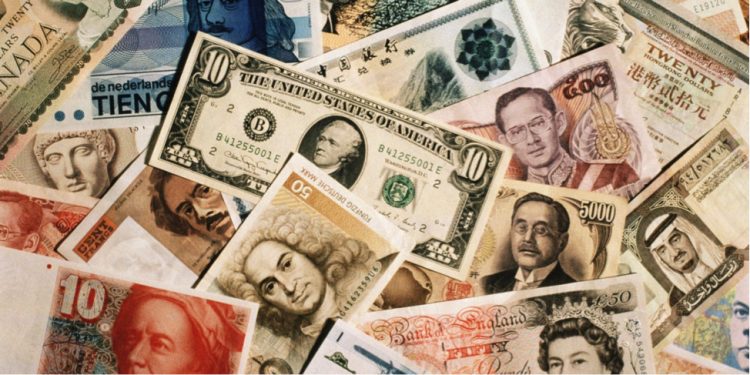Guest Post by @kevorango
On the 4th of April, 2019 The Guardian newspaper reported that British bank, Standard Chartered, which also operates a local subsidiary, agreed to pay $1.1 Billion (Ksh. 110 Billion) in fines to US and UK authorities for breach of Anti Money Laundering regulations through its Dubai subsidiary between 2009 and 2014. Part of the accusations was that it processed transactions amounting to $438 Million (Ksh. 43.8 Billion) for some sanctioned entities, routing these payments through its New York office, rousing the ire of US authorities. That was not all, in another comparatively minor incident, a customer in collusion with a junior staff opened an account and deposited £ 500,000 (Ksh. 66 Million) in cash carried in a suit case. There was no evidence to ascertain the source of this cash.
The Standard Chartered bank fines is far from the only one, in 2012 it was also reported that HSBC bank was fined $ 1.9 Billion (Ksh. 190 Billion) under similar circumstances. These were in relation to operations at its Mexico branch, processing payments for narcotic lords and other sanctioned entities. In HSBC case, its top executives were also forced to defer part of their bonuses for five years.
All these might seem like unreasonable huge amounts to fine banks and to some extent they are. In the case of Standard Chartered, the fine was nearly 30 % of its annual reported pretax profit ($3.98 Billion). In determining the fines, the regulators no doubt look at the extent of the violation and balances it against its desire to protect the financial system from flow of illegal money used for among other things, financing of terrorism. There is also the need to make these fines serve as a deterrent to other financial institutions.
Such news maybe too far removed from our local financial system that they barely make headlines locally and even when they do, they are mentioned only in passing. It is perhaps for this reason that our elected leaders recently engaged in a concerted campaign to prevail on the local regulator, Central Bank of Kenya, to relax its rules on the reporting requirements for cash transactions of $10,000 and above. Their reasoning being that the requirement stifles the flow of money in the economy, which is not a valid assertion. More on this later.
The lessons of NYS scandal where inordinate amount of cash was carted off from bank vaults in sacks seems to have long been forgotten. Our leaders seem to want to find comfort in the anonymity of cash not realizing that such stance emboldens criminals and peddlers of terror to continue their operations away from official financial system. It also encourages smuggling of goods and evasion of tax.
What our leadership need to understand is that the Central Bank’s role is not only to regulate local banks but also to protect the integrity of our financial system and by extension our economy. Kenya is part of the international financial system and if there is one thing that this system cannot tolerate (even the appearance of it) is money laundering. The US authorities have been known to not only fine banks, but sanction entire countries. The Kenyan economy will suffer shocks at the threat of sanctions but will surely collapse should such sanctions materialize. This is what the central bank governor has been trying to communicate, much to the displeasure of the political class.
Instead of engaging in this kind of debate, our politicians should ensure that the Financial Reporting Centre and Central Bank are empowered with more tools to be able to monitor the financial system proactively. Currently the rules in place though mandatory, have the appearance of voluntary compliance by banks and are only applied after an incident of violation. These government entities need to work together with banks to ensure seamless reporting. It helps that the relationship between banks, through its lobby group, Kenya Bankers Association, and Central bank is cordial, one might even say cosy.
It is perhaps because of this cosy relationship that incidences of gross violation have attracted very low fines from Central Bank. Five banks were recently fined a total of Ksh 392 Million by the regulator for their handling of NYS funds, a pittance, hardly a deterrent and does not make any significant dent in their bottom line. Compare this to US and UK authorities’ fine on Standard Chartered bank which was just under 30% of the bank’s pretax profit.
Back to the issue of the flow of cash in the economy raised by our politicians, Kenya is one of the most financially inclusive countries in Africa with a robust banking industry, FinTech companies, Saccos and Telcos. If any country could run a completely cashless economy, Kenya would be it. Also, the percentage of large cash transactions compared to the rest is very little, hardly 1%. If the Income is from legitimate business operations, this can be pretty much easy to explain. In addition, every bank knows its customer and the kind of business they are engaged in. That said, it would unreasonably bureaucratic for a customer who runs a known supermarket for example to fill Large Cash transaction Form each time they make a cash deposit. Banks should therefore just do enhanced Know Your Customer procedure every once in a while, for these known entities. Any entity who refuses this process, know what they are hiding.
Our financial system far too important to be subjected to the whims of politicians. The consequences of money laundering are far too great for our economy to bear and we lack the clout as a country to stand on our own should we be isolated from the international financial system.
Twitter: @kevorango




